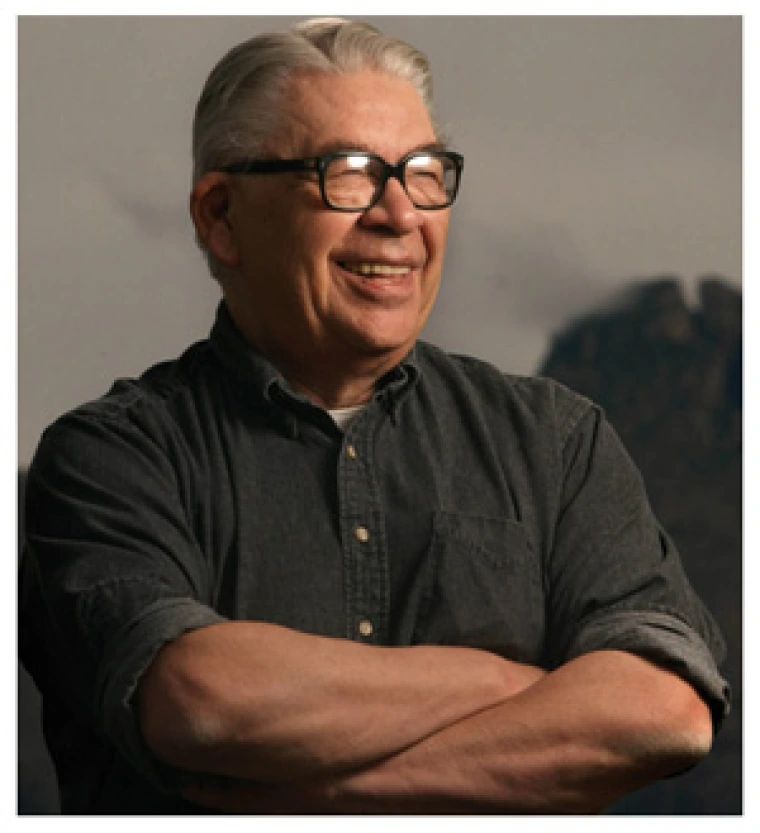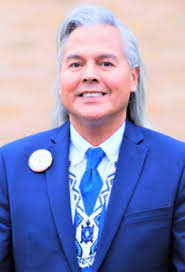Guest Opinion. What is happening now in Washington reminds me of an op-ed that the late scholar Vine Deloria Jr. (Standing Rock Lakota) published in The New York Times 55 years ago this month, in 1970, titled This Country Was a Lot Better Off When the Indians Were Running It.

Since having the honor to serve as his host when he lectured at Northern Michigan University in the late 1980s, I have been a fan of his writings. He was also the commencement speaker when I earned my first graduate degree (a Master’s in Public Administration).
Although the university did not schedule an interaction between Deloria and Native students, he made a point of seeking us out during the graduation dinner, joining us in the back section for a meal. In 1996, during my first attempt at a Ph.D. in Political Science, Deloria agreed to serve on my dissertation committee. Sadly, although I went on to complete two additional master’s degrees and eventually earned a doctorate in education, I did not finish my doctorate degree until after Deloria had passed in 2005.
Deloria was a prolific author of several epoch-making Indian policy texts, including Custer Died for Your Sins. He also served as the Executive Director of the National Congress of American Indians (NCAI) from 1964 to 1967 and earned a law degree. In his Times article, he wrote about the state of Indian affairs during the early years of the American Indian Movement, a few years before the enactment of the 1975 Indian Self-Determination and Educational Assistance Act (ISDEAA).
Reflecting on his experience leading NCAI, Deloria wrote:
“I learned more about life in NCAI in three years than I had in the previous 30.”
He also observed:
“I discovered I was one of the people who were supposed to solve the problems,” yet “…Indian people, both locally and nationally, were being played off against one another by clever whites who had either ego or income at stake.”

At the time, he criticized the administration of Indian Affairs, arguing that they “were proving unproductive” as “non-Indians…wormed their way back into power and again controlled the major programs serving Indians,” with agencies being “…dominated by whites who had pushed Indian administrators aside.”
Recognizing these systemic issues, Deloria decided to attend law school, noting:
“The Indian revolution was well underway, and someone had better get a legal education so that we could have our own legal program to defend Indian treaty rights.”
It wasn’t until half a century after his Times article appeared that tribal nations were able to celebrate the appointment of Secretary Deb Haaland (Laguna Pueblo), the first Native American to serve in a secretariat role in a presidential cabinet.
A critical question entering the second Trump administration is: Where are all the Indians?
The public service of Senator Markwayne Mullin (R-OK), who is a citizen of the Cherokee Nation; Rep, Tom Cole (R-OK), who is Chickasaw and chairman of the powerful Appropriations Committee; and Rep. Sharice Davids (D-KS), who is a tribal citizen of the Ho-Chunk Nation), suggests that a bipartisan Indian policy legislative and appropriations guardrail exists.
However, the great strides made in appointing Native leaders in recent administrations are quickly becoming fading memories. So far, only Billy Kirkland (Navajo) has emerged to serve in the Trump administration, He was nominated to be the Assistant Secretary for Indian Affairs in early February, but so far, there has been no news about a Senate hearing hear whether or not he is qualified.
National Native American organizations like NCAI, the National Indian Health Board (NIHB), and the National Indian Education Association (NIEA) have called for establishing Assistant Secretaries for both HHS and Indian Education and for reinstating the Native Liaison in the Office of Management and Budget.
The hiring of Native American professionals is not a matter of diversity, equity, and inclusion (DEI) initiatives; rather, it represents the U.S. government’s commitment to appointing highly qualified subject matter experts to advise on and administer the fulfillment of treaty and trust obligations—obligations based on political status, not race (Morton v. Mancari).
While recent litigation and administrative actions have led to the rescinding of funding freezes, layoffs, and terminations affecting Indian Country, simply fixing what was broken is not the same as preventing these mistakes in the first place. This underscores the need to honor the government-to-government relationship that originated in the Northwest Ordinance, was memorialized in Article I, Section 8, Clause 3 of the U.S. Constitution, and is reinforced by Executive Order 13175.
Before his recent passing, former Chair of the House Natural Resources Committee, Rep. Raul Grijalva (D-NM), introduced the Requirements, Expectations, and Standard Procedures for Executive Consultation with Tribes Act (RESPECT) and advocated for its passage during a 2019 press conference following a Government Accountability Office (GAO) report. The report revealed that only a fraction of federal agencies had complied with past executive orders requiring the establishment of meaningful tribal consultation policies.
However, tribal consultation as law remains unfulfilled.
Now more than ever, a strong Tribal Nation voice is needed at all levels of government. Health and Human Services (HHS) Secretary Robert F. Kennedy Jr. has already agreed to honor NCAI and NIHB’s policy recommendation to elevate an American Indian position to Assistant Secretary within HHS. It remains to be seen whether this will come to fruition—or whether any other Native Americans leaders will be appointed to serve in the Trump 2.0 administration.
Dr. Aaron A. Payment (Sault Ste. Marie Tribe), credits Dr. Vine Deloria as his inspiration for his scholarship and federal Indian policy work. For a brief period, Deloria served on Payment’s dissertation committee while Payment first worked on a doctorate in political science. Just some of Deloria’s scholarship includes titles like: God is Red; The Nation Within; We Talk, Your Listen; Destroying Dogma; Indian Education in America; Behind the Trail of Broken Treaties; American Indians, American Justice; Custer Died for Your Sins; Red Earth White Lives; Spirit and Reason; American Indian Policy in the Twentieth Century and several others.
More Stories Like This
The SAVE America Act Threatens Native Voting Rights — We Must Fight BackThe Presidential Election of 1789
Cherokee Nation: Telling the Full Story During Black History Month
Jesse Jackson Changed Politics for the Better
Native News Online at 15: Humble Beginnings, Unwavering Mission
Help us defend tribal sovereignty.
At Native News Online, our mission is rooted in telling the stories that strengthen sovereignty and uplift Indigenous voices — not just at year’s end, but every single day.
Because of your generosity last year, we were able to keep our reporters on the ground in tribal communities, at national gatherings and in the halls of Congress — covering the issues that matter most to Indian Country: sovereignty, culture, education, health and economic opportunity.
That support sustained us through a tough year in 2025. Now, as we look to the year ahead, we need your help right now to ensure warrior journalism remains strong — reporting that defends tribal sovereignty, amplifies Native truth, and holds power accountable.
 The stakes couldn't be higher. Your support keeps Native voices heard, Native stories told and Native sovereignty defended.
The stakes couldn't be higher. Your support keeps Native voices heard, Native stories told and Native sovereignty defended.
Stand with Warrior Journalism today.
Levi Rickert (Potawatomi), Editor & Publisher

